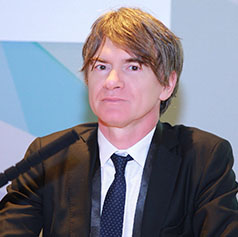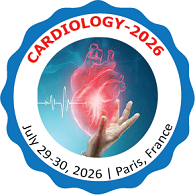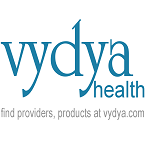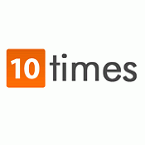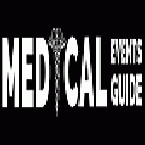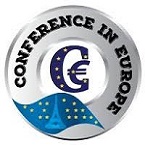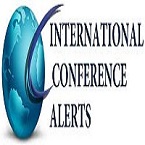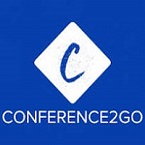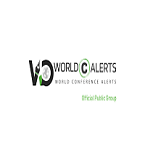Sessions and Tracks
Track-1: -Advances in Cardiovascular Imaging
This session will explore the latest technological breakthroughs in cardiovascular imaging, including innovations in echocardiography, magnetic resonance imaging (MRI), computed tomography (CT), and nuclear imaging. Topics will include the role of artificial intelligence in enhancing imaging accuracy, new non-invasive imaging techniques, and how these technologies are revolutionizing the diagnosis and management of heart disease. Experts will discuss their application in early detection, treatment planning, and monitoring of cardiovascular conditions.
Track-2:-Interventional Cardiology: New Frontiers
This track will focus on the latest developments in interventional cardiology, particularly in percutaneous coronary interventions (PCI), stenting technologies, and transcatheter aortic valve replacements (TAVR). The session will highlight minimally invasive techniques, patient selection strategies, and cutting-edge tools such as bioresorbable stents, drug-eluting balloons, and robotic-assisted procedures. Leading practitioners will present clinical data on the safety and efficacy of these technologies, offering attendees insights into future trends in the field.
Track-3: -Heart Failure Management: Innovations in Treatment
Heart failure remains one of the most challenging cardiovascular conditions to treat, with significant mortality and morbidity worldwide. This session will delve into the latest advances in heart failure management, including new pharmacological treatments, device therapy, and emerging therapies such as gene therapy and stem cell treatment. Speakers will share updates on clinical trials, emerging drugs, and novel interventions that are improving patient outcomes. Additionally, discussions will include individualized treatment strategies, remote monitoring, and patient care in the context of heart failure.
Track-4: -Cardiovascular Risk Assessment and Prevention
Preventing cardiovascular diseases (CVDs) is a key priority in modern cardiology. This track will focus on the latest methodologies for assessing cardiovascular risk, including the role of genetics, biomarkers, and advanced imaging in predicting heart disease. Experts will discuss the importance of lifestyle modification, including diet, exercise, and stress management, in reducing risk. Additionally, speakers will explore innovative prevention strategies tailored to high-risk populations and vulnerable communities, with a focus on public health initiatives and policymaking.
Track-5: -Cardiovascular Pharmacology and Therapeutics
This session will highlight the most recent developments in cardiovascular pharmacology, including new classes of drugs and novel therapies for managing hypertension, dyslipidemia, atrial fibrillation, and other cardiovascular conditions. Key topics will include the role of personalized medicine, pharmacogenomics, and drug interactions in optimizing patient care. Experts will present the latest clinical trial data on emerging cardiovascular drugs, their mechanisms of action, and their potential impact on clinical practice.
Track-6: -Cardiovascular Genetics: From Bench to Bedside
Advances in genomics are rapidly transforming the diagnosis and treatment of cardiovascular diseases. This track will focus on the role of genetic testing and molecular research in identifying inherited cardiovascular conditions, such as familial hypercholesterolemia, arrhythmias, and congenital heart defects. Speakers will discuss the use of genetic screening in risk prediction and early intervention, as well as the potential for gene therapies to address genetic causes of cardiovascular diseases.
Track-7: -Artificial Intelligence and Machine Learning in Cardiology
Artificial intelligence (AI) and machine learning (ML) are making significant contributions to the field of cardiology, enhancing diagnostic accuracy, predicting outcomes, and personalizing treatments. This session will showcase the latest applications of AI and ML in cardiology, including their role in imaging analysis, electronic health record data mining, predictive analytics for heart failure, and clinical decision support systems. Attendees will learn about the challenges and opportunities of integrating AI into clinical practice and the ethical considerations surrounding its use.
Track-8: -Cardiovascular Disease in Women
Cardiovascular disease manifests differently in women compared to men, and women are often underdiagnosed or undertreated. This session will focus on gender-specific cardiovascular health issues, exploring the unique risk factors, clinical presentation, and outcomes of heart disease in women. Topics will include the impact of pregnancy-related complications (e.g., preeclampsia), the role of hormones, and the latest evidence on managing CVD in women. Experts will also address the importance of awareness, research, and improving care for women with cardiovascular disease.
Track-9: -Pediatric and Congenital Heart Disease
This track will focus on the diagnosis, treatment, and management of congenital heart defects and pediatric cardiovascular conditions. Topics will include advances in early detection, prenatal screening, and the latest surgical techniques for correcting congenital defects. Experts will discuss long-term management strategies, including the transition of pediatric patients to adult care, and the challenges of managing children with cardiovascular conditions. This session will also highlight the role of multidisciplinary care teams in improving outcomes for pediatric patients with heart disease.
Track-10: -Cardiovascular Surgery: Evolving Techniques and Practices
This session will focus on the latest advances in cardiovascular surgery, including innovations in bypass surgery, valve repair and replacement, and endovascular surgery. Topics will include the adoption of minimally invasive techniques, robotic-assisted surgery, and hybrid approaches to treatment. Surgeons will share insights into the evolving role of surgery in the treatment of cardiovascular disease, including risk assessment, patient selection, and the integration of new technologies into surgical practice.
Track-11: -Arrhythmias: Diagnosis and Treatment
Arrhythmias are a major cause of morbidity and mortality in patients with cardiovascular disease. This track will explore the latest advances in the diagnosis and treatment of arrhythmias, including atrial fibrillation, ventricular arrhythmias, and heart block. Speakers will cover the role of electrophysiology, catheter ablation, pacemakers, and defibrillators in managing arrhythmias, as well as emerging treatments such as gene therapy and novel anti-arrhythmic drugs. Attendees will learn about the latest clinical guidelines and evidence-based approaches to arrhythmia management.
Track-12: -Cardiovascular Rehabilitation: Enhancing Recovery
Cardiovascular rehabilitation is a crucial aspect of patient recovery following heart surgery, myocardial infarction, or other major cardiac events. This session will focus on the importance of rehabilitation in improving outcomes, reducing recurrence, and enhancing quality of life for patients with heart disease. Experts will discuss the latest developments in exercise physiology, psychological support, and lifestyle modification programs. The session will also explore the integration of telemedicine and digital health technologies in delivering effective rehabilitation programs.
Track-13: - Nutrition and Lifestyle Modifications in Cardiovascular Health
A healthy diet and lifestyle play a crucial role in preventing and managing cardiovascular disease. This track will focus on the latest evidence regarding the impact of nutrition, physical activity, and other lifestyle factors on heart health. Topics will include the role of plant-based diets, the effects of specific nutrients (e.g., omega-3 fatty acids, antioxidants), and the importance of weight management in reducing cardiovascular risk. Experts will discuss practical strategies for implementing lifestyle changes in clinical practice to improve patient outcomes.
Track-14: - Global Cardiovascular Health Challenges
Cardiovascular disease is a leading cause of death worldwide, with significant disparities in access to care, prevention, and treatment across different regions. This session will address the global burden of cardiovascular disease, focusing on low- and middle-income countries. Speakers will explore public health strategies, such as promoting awareness, improving access to essential medications and diagnostic tools, and implementing cost-effective interventions to address the global cardiovascular epidemic. Discussions will include the role of international collaborations, policymaking, and healthcare systems in tackling these challenges.
Track-15: -The Future of Cardiovascular Research: From Innovation to Implementation
This final track will look ahead at the future of cardiovascular research, exploring promising areas of innovation, such as regenerative medicine, nanotechnology, and personalized therapies. Experts will discuss how these innovations will shape the future of cardiovascular disease prevention, diagnosis, and treatment. The session will also focus on the challenges of translating research findings into clinical practice, including regulatory hurdles, funding limitations, and the importance of collaboration between academia, industry, and healthcare providers to accelerate the adoption of new technologies and therapies.






